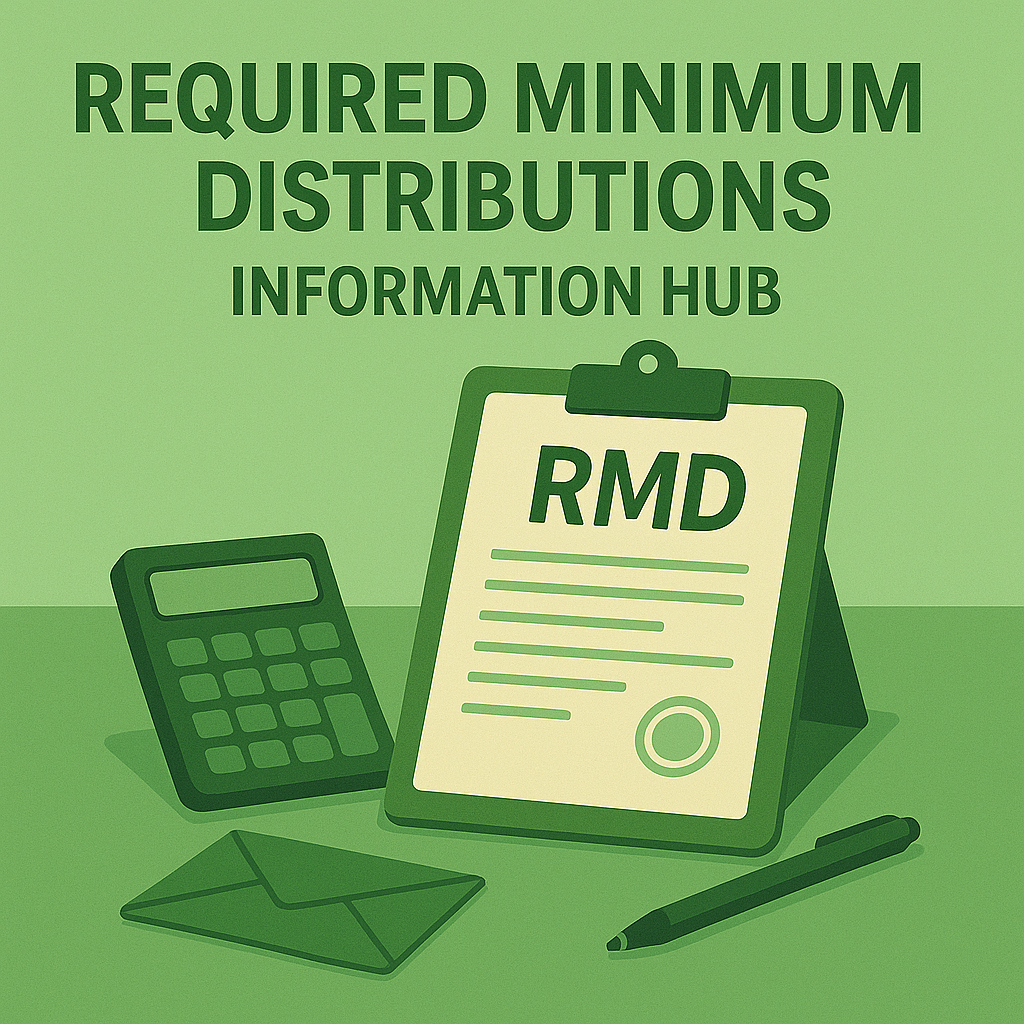Understanding RMDs & How They Affect Your Retirement & Estate Plan
The Required Minimum Distributions Hub
If you have retirement accounts like a 401(k), IRA, or other tax-deferred accounts, you cannot keep your money in them forever. Required Minimum Distributions (RMDs) are the government’s way of ensuring you eventually withdraw and pay taxes on your retirement savings.
RMD rules can be confusing, and failing to take them on time can result in steep penalties. This hub provides a high-level overview of what RMDs are, when they start, how they are calculated, and their impact on taxes, retirement, and estate planning.

Key Things To Know
If you have a traditional IRA, 401(k), or other tax-deferred retirement account, you are required to start withdrawing funds at a certain age.
- RMDs begin at age 73. If you turn 73 this year, you must take your first required withdrawal by April 1 of next year.
- You must withdraw a minimum amount annually. The amount is based on your account balance and life expectancy, using IRS tables.
- Skipping an RMD results in heavy penalties. If you fail to take your full RMD, the IRS may charge a 25% penalty on the amount you should have withdrawn.
- RMDs are taxed as ordinary income. The more you withdraw, the higher your taxable income for the year.
- Roth IRAs do not have RMDs. However, inherited Roth IRAs have separate distribution rules.
- RMD rules apply to inherited retirement accounts. If you inherit an IRA or 401(k), different RMD rules may apply depending on your relationship to the original owner.
Frequently Asked Questions
RMD rules can significantly affect your taxes, retirement planning, and estate strategy. Knowing the basics can help you avoid costly mistakes and maximize your savings.
Checklists, Guides, & Resources
Buried in Work offers a variety of checklists, guides, and other resources. Below are some of the most popular ones related to this information hub.
Find A Service Provider Near You
Need professional assistance? Use our directories to find trusted service providers near you who specialize in estate planning, end-of-life organization, and related services.
Articles
Disclaimer: The information provided on this website and by Buried in Work is for general informational purposes only and should not be considered legal advice. Please consult with a qualified attorney or subject matter expert for advice specific to your situation.



